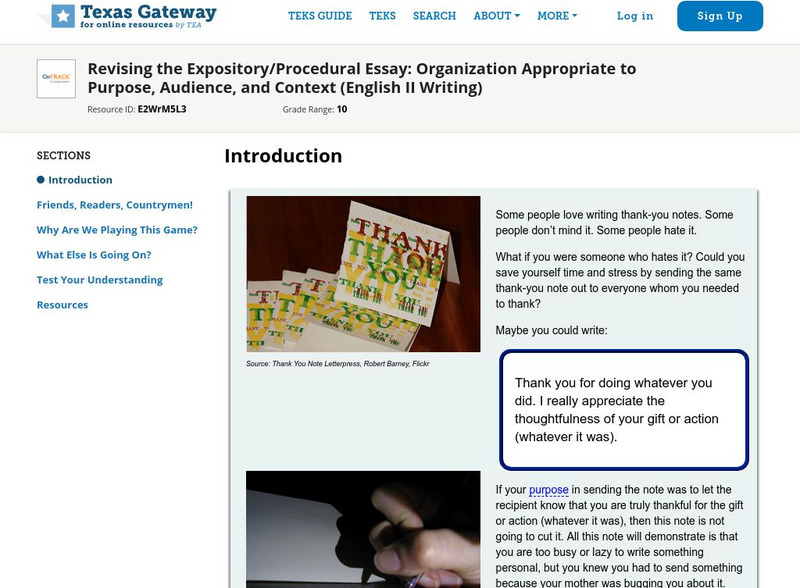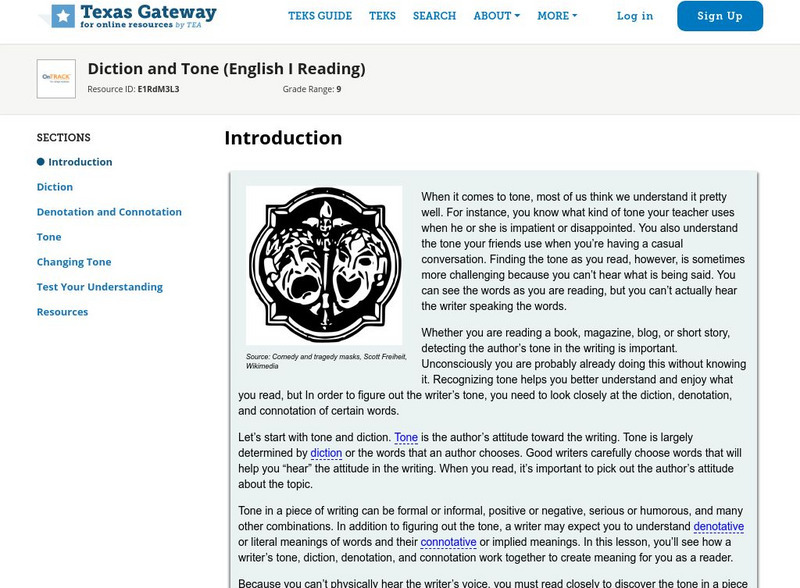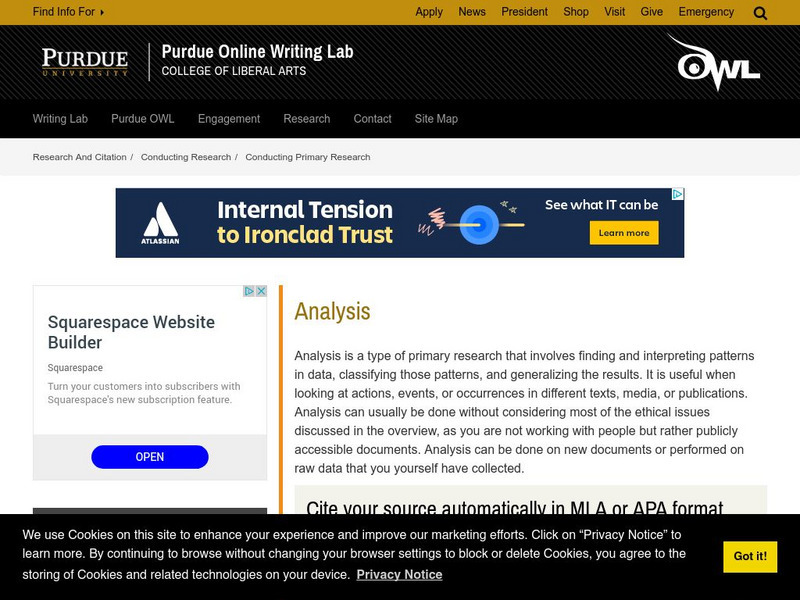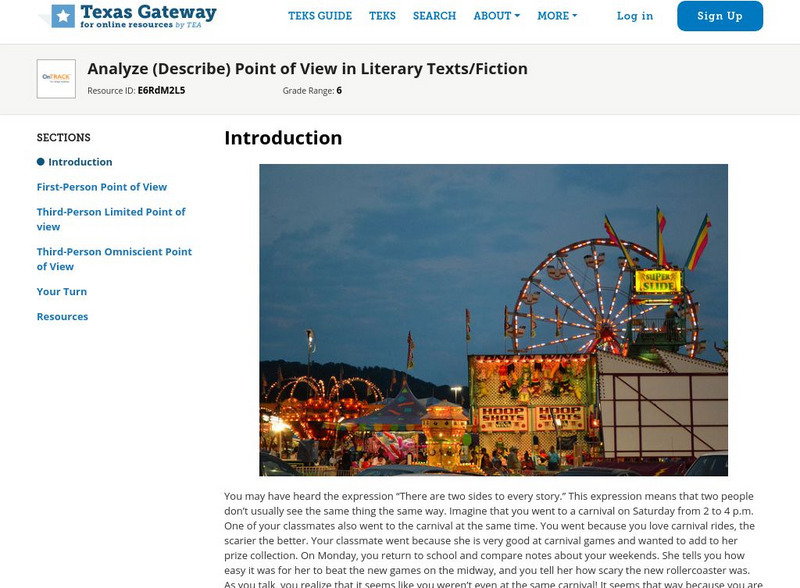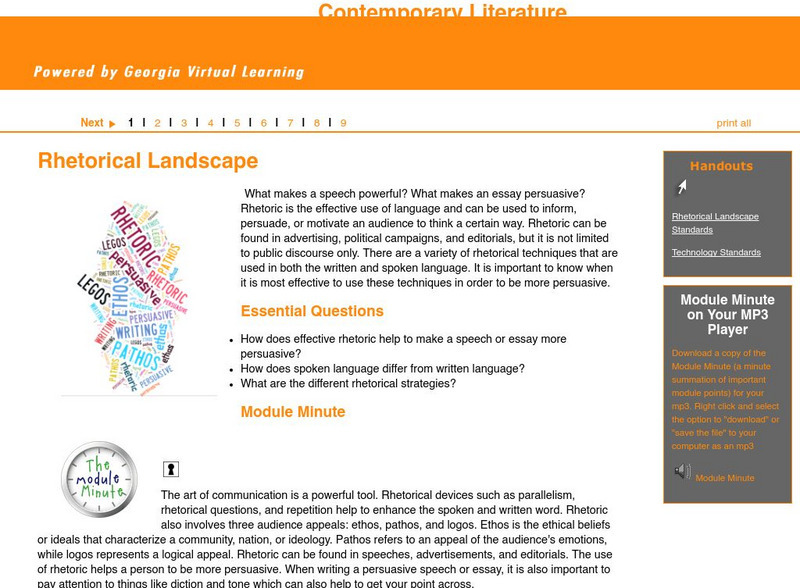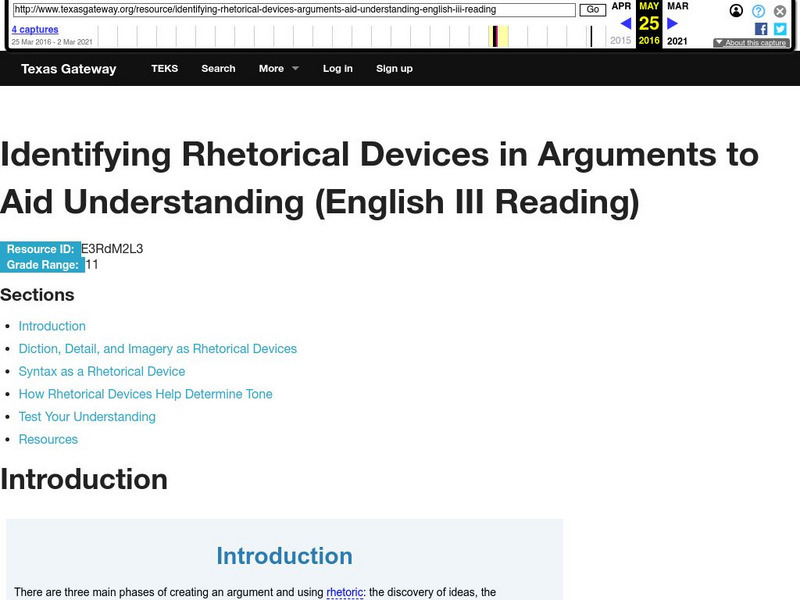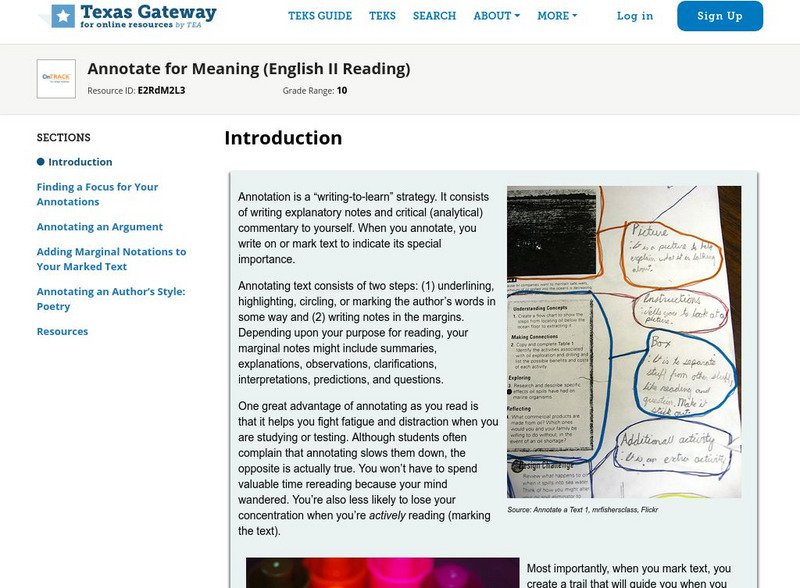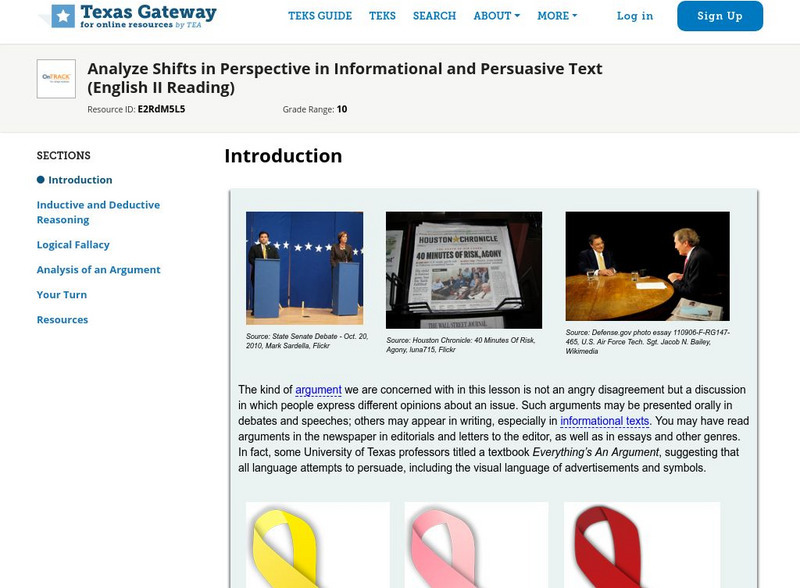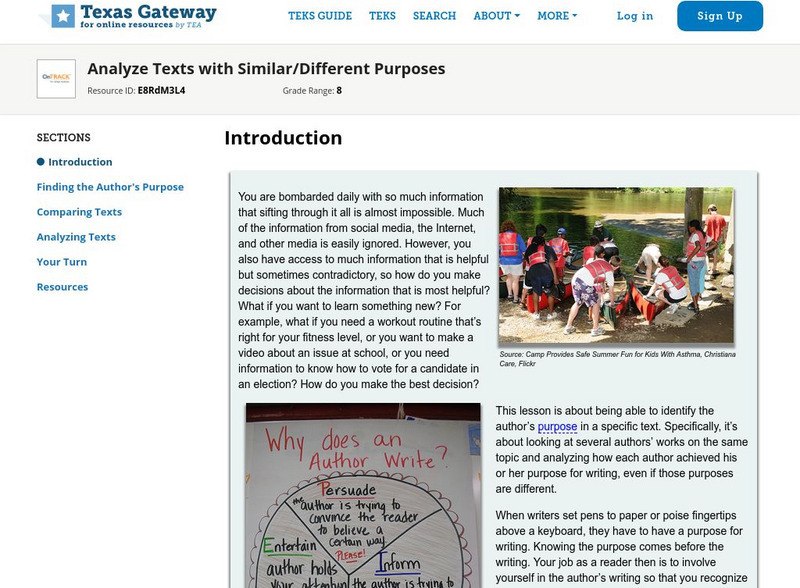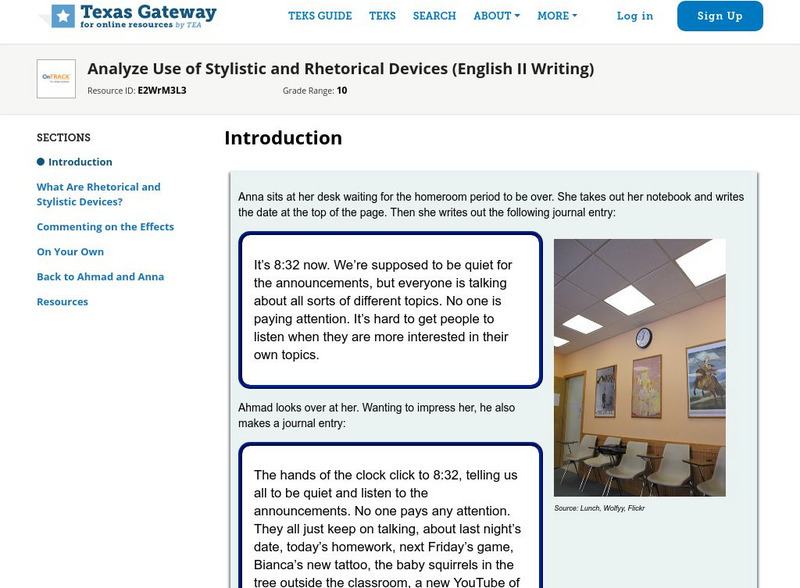Sophia Learning
Sophia: Purpose
This slideshow lesson focuses on purpose; it defines purpose and lists the two main purposes of all writing: to educate (didactic text meaning to inform and instruct) or to entertain (imaginative text). The purpose could also be art for...
Sophia Learning
Sophia: Selecting Topics for Literary Analysis
A series of resources designed to teach students how to write a literary analysis. The first is a screencast [6 mins] that focuses on defining and introducing the parts of a literary analysis. The second is a slide show with seven slides...
Sophia Learning
Sophia: Analytical Papers
This lesson focuses on analytical papers; it explains how to analyze a subject and the goal of analytical papers. They must include a defined or specific perspective from which to evaluate, an evaluation, and the breakdown of the...
Sophia Learning
Sophia: Annotating Text
This slideshow focuses on the reading strategy, annotating text. It defines the term and purpose, lists types of annotation, explains what to annotate, and suggests how readers develop their own method.
Yale University
Yale University: Open Yale Courses: Introduction to Theory of Literature
Access any one of twenty-five lectures, in audio, video, or text format, from a university-level course in literary analysis and critical literary theories. Considers postmodernism, New Criticism, feminism, deconstructionism, and an...
Annenberg Foundation
Annenberg Learner: Arbiter
Determine your standards (logic, creativity, structure, etc.) when assessing student writing. Evaluate three essays using an analytic or holistic rubric and see how your standards compare with your peers.
Annenberg Foundation
Annenberg Learner: Interactive Forum
Read two poems and follow the prompts to interpret them using four approaches: reader response, inquiry, cultural studies, and critical pedagogy. Use the prompts to guide personal reflection, launch a lesson with students, or join an...
Other
Carson Newman College: Critical Reading of an Essay's Argument
Extensive examination of what it means to critically read an argument. This process is sometimes called "critical reading," or "close reading," or "active reading." First the differences between reading to extract information and reading...
Georgia Department of Education
Ga Virtual Learning: "How to Write a Literary Analysis Essay" [Pdf]
This is a nine-page PDF entitled "How to Write a Literary Analysis Essay" which explains in detail the parts of a literary analysis and how to write them.
Sophia Learning
Sophia: Critical Reading as a Learning Strategy
This tutorial focuses on critical reading using a downloadable PowerPoint presentation, "Critical Reading 101," which includes separating fact from opinion, 6 propaganda techniques, and 6 common fallacies in reasoning. Also provided is...
Texas Education Agency
Texas Gateway: Revising Expository/procedural Essay: Purpose, Audience, Context
[Accessible by TX Educators. Free Registration/Login Required] Find out strategies for evaluating and revising an essay so that it is organized appropriate to purpose, audience, and context.
Texas Education Agency
Texas Gateway:diction and Tone (English I Reading)
In this learning module, the user will learn and apply the concepts of tone and diction. Tone is the author's attitude toward the writing. Tone is largely determined by diction or the words that an author chooses.
Online Writing Lab at Purdue University
Purdue University Owl: Analysis
This entry focuses on using analysis to interpret primary resources; it provides methods and examples of analysis. W.9-10.10 Write Routinely
Texas Education Agency
Texas Gateway: Analyze Clarity of Objectives of a Procedural Text
[Accessible by TX Educators. Free Registration/Login Required] In this lesson, students will learn how to analyze writing in software, warranty, and consumer manuals or publications.
Texas Education Agency
Texas Gateway: Analyze Thesis, Purpose, Textual Elements in Informational Text
[Accessible by TX Educators. Free Registration/Login Required] This lesson focuses on how to locate the controlling idea or thesis and specific purpose in a text and analyze the roles they play in understanding what you read. You will...
Texas Education Agency
Texas Gateway:analyze (Describe) Point of View in Literary Texts/fiction
In this learning module, students will learn to analyze fiction told from the first-person, third-person limited, and third-person omniscient points of view.
Georgia Department of Education
Ga Virtual Learning: Contemporary Literature: Rhetorical Landscape
This is an introduction to a unit on the use of rhetoric in speaking or writing to persuade an audience to the desired way of thinking or action. If focuses on rhetorical techniques and the three audience appeals: ethos, pathos, and logos.
Texas Education Agency
Texas Gateway: Identifying Rhetorical Devices in Arguments to Aid Understanding
This lesson focuses on the expression of ideas, the stylistic choices writers make. Because the range of choices is so broad, the activities in the lesson will focus on DDIST: (Diction, Detail, Imagery, Syntax, Tone) to help you remember...
Texas Education Agency
Texas Gateway: Analyze Point of View in Literary Texts/fiction
[Accessible by TX Educators. Free Registration/Login Required] In this lesson, students will learn to identify the primary points of view used in fiction and weigh the advantages and disadvantages of each.CCSS.ELA-Literacy.CCRA.R.6
Texas Education Agency
Texas Gateway: Annotate and Analyze a Paired Passage: Practice 2
[Accessible by TX Educators. Free Registration/Login Required] In this lesson, students will read and annotate a pair of texts to make inferences, draw conclusions, and synthesize ideas and details using textual evidence.
Texas Education Agency
Texas Gateway: Annotate for Meaning (English Ii Reading)
This lesson focuses on annotating text to aid in understanding of the text including annotating an argument and poetry. It also provides tools and techniques for marking text.
Texas Education Agency
Texas Gateway: Analyze Shifts in Perspective in Informational & Persuasive Text
[Accessible by TX Educators. Free Registration/Login Required] In this lesson, students will read informational texts and identify varying perspectives in different arguments on the same topic. You will also analyze the reasoning and the...
Texas Education Agency
Texas Gateway: Analyze Texts With Similar/different Author's Purpose
[Accessible by TX Educators. Free Registration/Login Required] This lesson focuses on being able to identify the author's purpose in a specific text. Specifically, it's about looking at several authors' works on the same topic and...
Texas Education Agency
Texas Gateway: Analyze Use of Stylistic and Rhetorical Devices
[Accessible by TX Educators. Free Registration/Login Required] In this lesson, students are going to learn to comment on writing composed by writers who are aesthetic types, writers who use language to bring images to our minds as we...


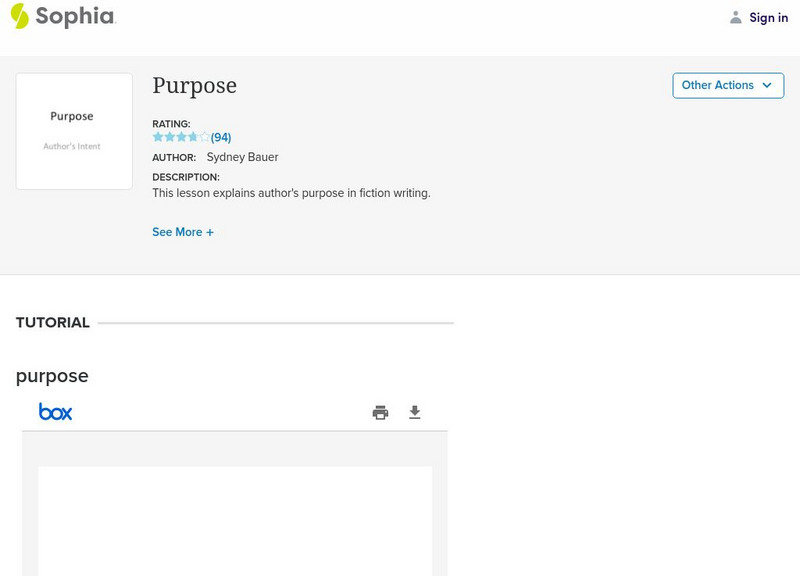

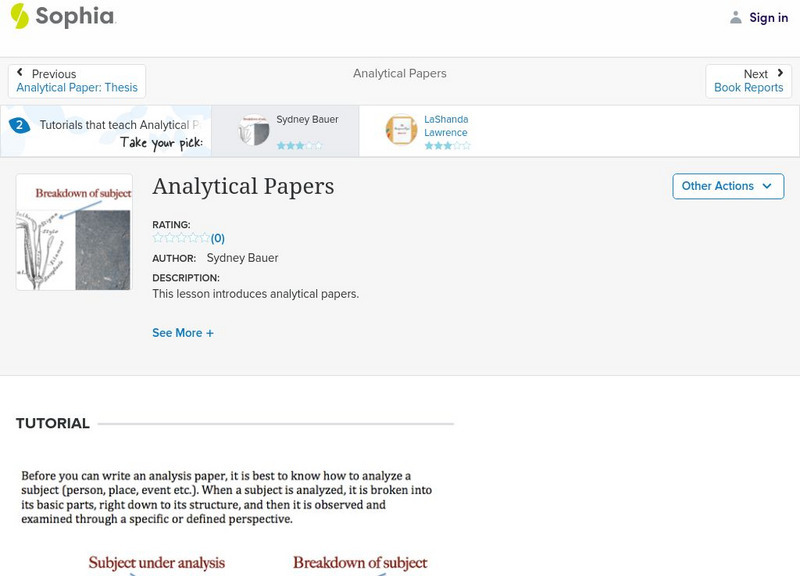
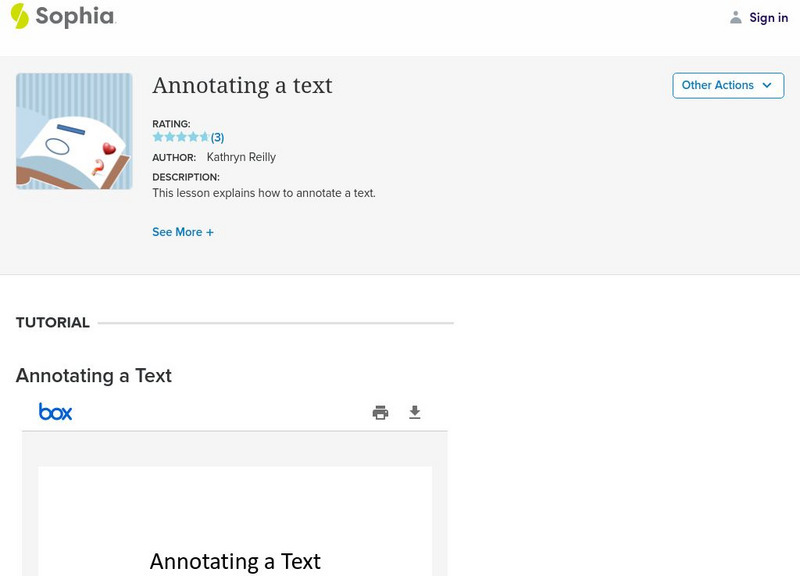



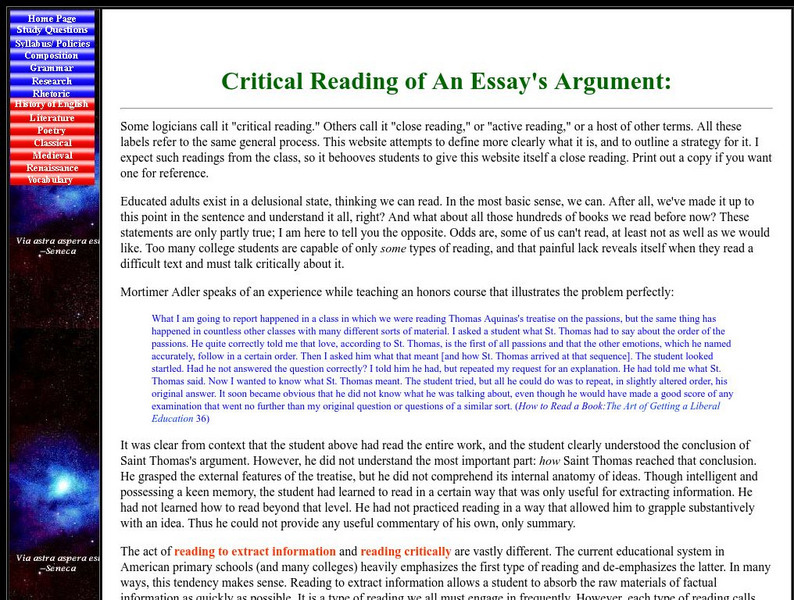
![Ga Virtual Learning: "How to Write a Literary Analysis Essay" [Pdf] Unit Plan Ga Virtual Learning: "How to Write a Literary Analysis Essay" [Pdf] Unit Plan](https://d15y2dacu3jp90.cloudfront.net/images/attachment_defaults/resource/large/FPO-knovation.png)

